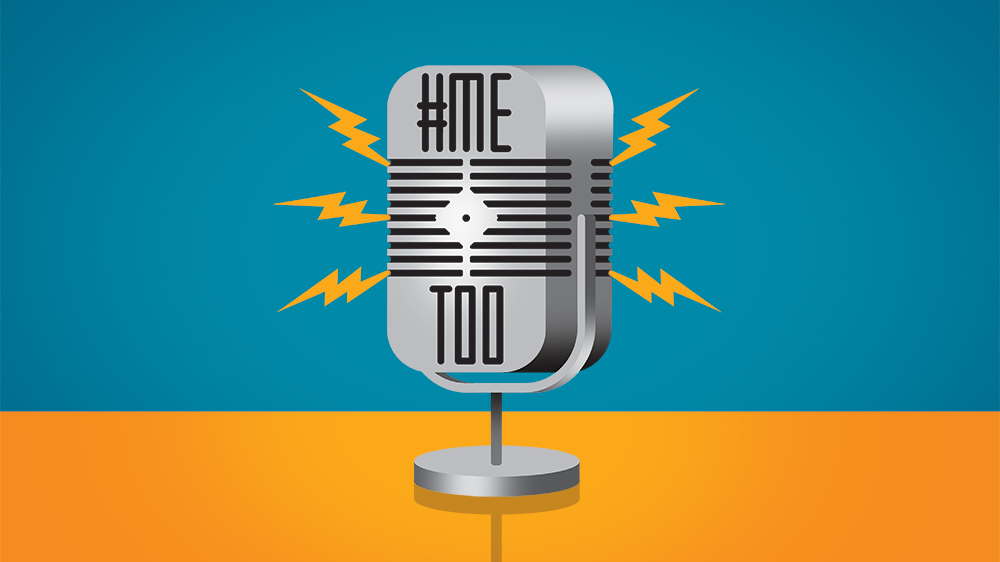How the #MeToo Movement Has Played Out on Scripted TV
By Whitney Friedlander
LOS ANGELES (Variety.com) – These past few months have been a reckoning like no other, as those empowered by movements like #MeToo and Time’s Up find the confidence to speak out against abusers within the industry. And while it usually takes time for television programming to catch up with world events due to production constraints, scripted TV has been right there with the news cycle, grappling with sexual harassment and assault stories.
“The issue didn’t come up when #MeToo started — the issue’s been around, and that’s why I think it resonated so much when this started happening,” says “The Good Doctor” creator David Shore, who notes that he and the ABC medical drama’s other writers had already been planning to have a related storyline before Alyssa Milano rekindled Tarana Burke’s movement last fall.
“It’s a real issue and it’s been a real issue for a long time,” he adds. “In its most egregious form and in its subtle form, it is a real problem that women have to deal with in the workplace regularly. When the idea of that came up in the writers’ room, it seemed important to do it.”
So it was decided that Antonia Thomas’ Dr. Claire Brown, one of the younger doctors on “” and therefore someone with more to lose, would be sexually harassed by a superior. Shore says they “went with the [character] who we thought was the most vulnerable — not that anybody’s not vulnerable.”
While the storyline originated in the freshman drama’s midseason finale, Shore says it was important not to make this incident an isolated one. After all, it normally isn’t for people who actually live it. Ramifications continued when the show came back from hiatus.
“The challenges and the difficulties and the frustrations — we wanted to embrace it and we wanted it to carry forward,” Shore says. “We didn’t want it to be something that happens and then it’s just forgotten about. We wanted it to play out over a few episodes. We didn’t want it to be what the show is completely all about, but we wanted to deal with it honestly, and that means for more than just a moment. This is something that carries on and that people live with.”
To that point, Shore isn’t sure if this will be the last of #MeToo on “The Good Doctor.” The issue has been particularly resonant in the medical community, and the show has already hinted that Tamlyn Tomita’s Allegra Aoki, the chairman and VP of the foundation that controls the hospital in the show, may have had similar experiences in her past.
It’s also a topic Robert King and Michelle King had been mining before #MeToo exploded — both on their long-running CBS legal drama “The Good Wife” and its spinoff on CBS All Access, “.” The latter series, which finished its second season last month, had three episodes related to news headlines surrounding recent assertions: one based on sexual assault allegations that surrounded ABC’s “Bachelor in Paradise” last season, one inspired by Ronan Farrow’s Harvey Weinstein investigation for the New Yorker magazine, and one rooted in the scandal that erupted from dating accusations against Aziz Ansari, reported on Babe.net. (In “The Good Fight’s” version, a guy gets fired after his name and alleged acts show up on a website meant to protect women from potentially bad paramours.)
“It didn’t start from a place of, ‘let’s tell several stories on this issue,’” Michelle King says. “It really was on any given day what was grabbing us and causing all of us to argue in the writers’ room. … If people can’t let a subject go, and [are] having disagreements about it, that’s a good indication.”
These stories also allowed for a continued exploration of how social media plays into empowerment and abuse, which are other themes their shows have long explored from various perspectives.
| Stories of sexual harassment and consent played across genres this season, on shows such as “Great News” (top left), “Jane the Virgin” (top right) and “The Good Doctor” (bottom right). Courtesy of NBC/CW/ABC |
“One of the ways to keep the integrity [of the show is when] there’s an argument that people we like have on both sides,” Robert King says. “This show isn’t about preaching one way or the other. It’s more fascinating [when it’s] about people. Everyone in the writers’ room … has these massive arguments about the new rules and maybe we should put new rules in place. We honor that by exploring how we disagree on both sides.”
Robert King adds that he was particularly interested in looking at the “Bachelor in Paradise” scenario, which involved recorded footage, both “because reality TV has influenced our lives more than we all thought” and because “it’s fascinating to have a visual element to coercion. You have a video and you can replay it and decide if it’s coercion or if it’s not.”
“The stories that interest us is the definition of coercion and human intimacy and the empowerment of women to work together to expose these things, which I think is playing out in a few levels in the show,” he says.
Movements like #MeToo highlight the cold realities and sometimes life-ruining events that have become commonplace for those who are systemically oppressed. There’s nothing funny about this, but that doesn’t mean comedies have felt the need to avoid them.
NBC’s “Saturday Night Live” has donated plenty of sketches to the discussion, and “New Girl” executive producer Brett Baer told journalists at the Fox sitcom’s winter Television Critics Assn. press day that the writers became more cautious and “made adjustments” to scripts when they were writing the series’ final episodes as #MeToo-related news reports were breaking. Even Netflix’s “Unbreakable Kimmy Schmidt” dabbled in the topic in its fourth season when the titular character got a job at a tech company and was still too naive to know what was inappropriate behavior toward co-workers.
The CW telenovela “” chose to revisit an old storyline involving Gina Rodriguez’s titular heroine and an affair she once had with a graduate school adviser. While that romance was consensual when it happened a couple seasons back, a now older Jane has the hindsight to see this as a pattern with her ex-paramour. “Jane” creator Jennie Snyder Urman told Variety then that the story was brought about by the “long-needed sea-changing happening right now” of survivors coming forward.
As someone who writes a romantic comedy — a genre rife with misconceptions about relationships and dating, “I’ve always felt a big responsibility in terms of portraying sex, sexuality [and] choice in terms of who Jane is and who watches the show and what we want to put out in the world,” she said.
“,” NBC’s comedy about a TV news show, took on sexual harassment and work-life balance when it had (mis)fortune of airing an episode in October just as the Weinstein story was breaking. There, series executive producer Tina Fey guest starred as a female executive who was sexually harassing people just to get her golden parachute similar to her real-life male contemporaries, Roger Ailes and Bill O’Reilly. It wasn’t that she wanted to take advantage of people; she was just exhausted from “having it all.”
“Obviously, it’s changing for the better, but I think a part of sexual harassment that’s so insidious is — at least pre-Harvey Weinstein — whenever you hear about something like that happening, there’s always a thought in people’s minds about victim blaming,” creator Tracey Wigfield says. “Even for me, as a woman, I feel like those questions would kind of pop up.”
She and her writers wanted to “reverse the genders” and hopefully “shine a light on how offensive and ridiculous this is.”
“If it was a guy who was being harassed, you’d never say ‘Why was he wearing those khaki pants? Why was he in his female boss’ office late at night?’,” she says.
This year truly has been a learning experience for all.


